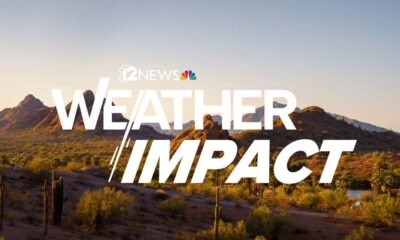Arizona road tax
Vote on Tax Hike Approaches: Polls Reveal Deep Divides in Public Support

On Tuesday, the Maricopa City Council is set to vote on a proposed half-cent sales tax aimed at funding local road upgrades, including the widening of State Route 347. If approved, the tax would begin on October 1 and remain in effect for 20 years, generating approximately $8 million annually, according to city officials.
InMaricopa recently conducted a poll, surveying 1,130 residents about their views on the sales tax proposal. Interestingly, over 60% of respondents indicated their support for the initiative, even though State Route 347 falls outside city jurisdiction. Gasoline and groceries will remain exempt from the tax.
Supporters, like Glennwilde resident Emily Castle Wehrle, acknowledge that maintenance of state highways is primarily a state responsibility. However, she emphasizes the need for safer roads, stating, “It’s worth the extra price to make it home safe.” Rancho Mirage resident Joshua Ault shares similar sentiments, expressing a willingness to invest in repairs if funds are used appropriately.
Conversely, some residents harbor skepticism about the proposal. Cobblestone Farms resident Kelly Eheler expressed concerns about the legitimacy of the tax, recalling a past Pinal County roads tax deemed unconstitutional. She remarked, “The ‘poll’ will not let you vote no; it’s rigged to make it ‘look’ like citizens want it.”
Despite concerns, 35% of poll participants voted against the tax increase, citing doubts about where the funds would ultimately be directed. Ian Breheney, a Rancho Mirage resident, voiced his frustration, saying, “There is no guarantee the funds will go towards SR 347 improvements. For that reason, I’m out.”
Other critics echoed similar viewpoints, insisting that the city should not bear the cost of state road maintenance. Hidden Valley resident Lee Morano stated that “the city shouldn’t have to bribe the state to fix 347.”
Past experiences continue to haunt public opinion. Residents like David Ruckert expressed fears that funds could be misappropriated, saying, “I don’t want to pay for 10 years and then have Katie Hobbs steal it for Phoenix again.”
In contrast, the poll revealed that only 25 respondents (2%) were undecided—significantly lower compared to a similar survey conducted six months earlier, which exhibited higher rates of uncertainty. The community’s stance on this tax initiative remains contentious, reflecting a blend of support and skepticism.


















